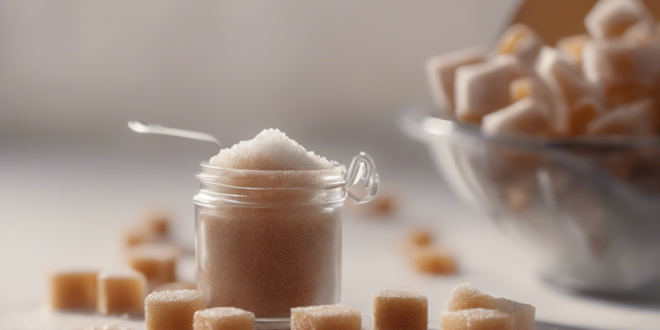6 Natural Sugar Substitutes to Use Instead of the Processed Stuff
In today’s health-conscious world, many people are looking to reduce their intake of processed sugars and explore healthier alternatives. The excessive consumption of refined sugar has been linked to numerous health issues, including obesity, diabetes, and heart disease. Fortunately, nature provides us with several delicious and nutritious sugar substitutes that can help satisfy your sweet tooth while offering additional health benefits.
Understanding the Sugar Dilemma
Processed sugar has become a staple in the modern diet, hidden in everything from breakfast cereals to salad dressings. These refined sugars provide empty calories, spike blood glucose levels, and offer no nutritional value. The average American consumes approximately 17 teaspoons of added sugar daily, far exceeding the recommended limit of 6-9 teaspoons recommended by health experts.
1. Honey: Nature’s Liquid Gold
Raw, unprocessed honey is more than just a sweet treat. This natural sweetener is packed with antioxidants, enzymes, and trace minerals that provide significant health benefits. Unlike refined sugar, honey has a lower glycemic index, meaning it causes a slower and more gradual rise in blood sugar levels. Local, raw honey can also help combat seasonal allergies and boost immune function.
Different varieties of honey offer unique flavor profiles and nutritional benefits. Manuka honey from New Zealand, for instance, is renowned for its powerful antibacterial properties. When purchasing honey, always opt for raw, unprocessed varieties to maximize health benefits.
2. Maple Syrup: More Than Just a Pancake Topping
Pure maple syrup is far more than a breakfast condiment. Derived from the sap of maple trees, this natural sweetener contains an impressive array of minerals, including manganese, zinc, and calcium. It’s rich in antioxidants and has a lower glycemic index compared to refined sugar. Choose 100% pure maple syrup and avoid products with added sugars or artificial ingredients.
The darker grades of maple syrup, such as Grade B, typically contain more minerals and a more robust flavor profile. Just a tablespoon can provide a significant nutritional boost to your recipes.
3. Stevia: The Plant-Based Sweetener
Extracted from the leaves of the Stevia rebaudiana plant, stevia is a zero-calorie natural sweetener that has gained significant popularity among health-conscious individuals. Unlike artificial sweeteners, stevia is plant-based and does not contain any synthetic chemicals. It’s particularly beneficial for people managing diabetes or trying to control their weight.
Available in liquid and powdered forms, stevia can be used in baking, cooking, and as a sweetener for beverages. Some people find it has a slight aftertaste, so it’s recommended to experiment with different brands and forms to find one that suits your palate.
4. Coconut Sugar: A Tropical Alternative
Derived from the sap of coconut palm trees, coconut sugar offers a more nutrient-dense alternative to white sugar. It contains trace amounts of iron, zinc, calcium, and potassium, along with a type of fiber called inulin, which may help slow glucose absorption. While it’s still a form of sugar and should be consumed in moderation, it provides a more complex nutritional profile.
Coconut sugar has a lower glycemic index compared to traditional sugar and provides a rich, caramel-like flavor that works well in baking and cooking.
5. Monk Fruit Sweetener: The Zero-Calorie Wonder
Monk fruit sweetener is extracted from the monk fruit, a small melon native to Southeast Asia. This natural sweetener contains zero calories and does not impact blood sugar levels, making it an excellent option for people with diabetes or those following a low-carb diet. The sweetener is derived from the fruit’s natural compounds called mogrosides, which provide intense sweetness without the calories.
Available in liquid and powdered forms, monk fruit sweetener can be used in baking, beverages, and as a general sugar replacement. It’s important to read labels, as some commercial monk fruit sweeteners may contain additional ingredients.
6. Dates: Nature’s Candy
Whole dates or date paste offer a natural, nutrient-rich sweetening option. Packed with fiber, potassium, iron, and antioxidants, dates provide sweetness along with substantial nutritional benefits. They can be blended into smoothies, used as a natural sweetener in baking, or enjoyed whole as a healthy snack.
Medjool dates are particularly popular for their rich, caramel-like flavor and soft texture. When using dates as a sugar substitute, you may need to adjust liquid quantities in recipes to achieve the desired consistency.
Tips for Transitioning to Natural Sweeteners
Switching from processed sugar to natural alternatives requires patience and experimentation. Start by gradually reducing sugar intake and introducing these alternatives. Remember that while these options are healthier, they should still be consumed in moderation. Each person’s nutritional needs and taste preferences are unique, so don’t be afraid to try different options.
Conclusion: A Sweeter, Healthier Approach
By embracing these natural sugar substitutes, you can take significant steps towards improving your overall health and nutrition. These alternatives not only provide sweetness but also offer additional nutritional benefits that processed sugar lacks. Make informed choices, listen to your body, and enjoy the journey towards a healthier lifestyle.
 Good Calories Guide GoodCalories Guide focuses on nutrition, healthy eating, and overall wellness. The site offers practical insights into evidence-based dietary practices, including tips for specific lifestyles such as veganism, keto, and family-friendly meal planning. It also addresses unique nutritional needs for individuals with conditions like diabetes or food allergies, while providing quick and accessible recipes to make healthy living a sustainable and enjoyable choice.
Good Calories Guide GoodCalories Guide focuses on nutrition, healthy eating, and overall wellness. The site offers practical insights into evidence-based dietary practices, including tips for specific lifestyles such as veganism, keto, and family-friendly meal planning. It also addresses unique nutritional needs for individuals with conditions like diabetes or food allergies, while providing quick and accessible recipes to make healthy living a sustainable and enjoyable choice.


